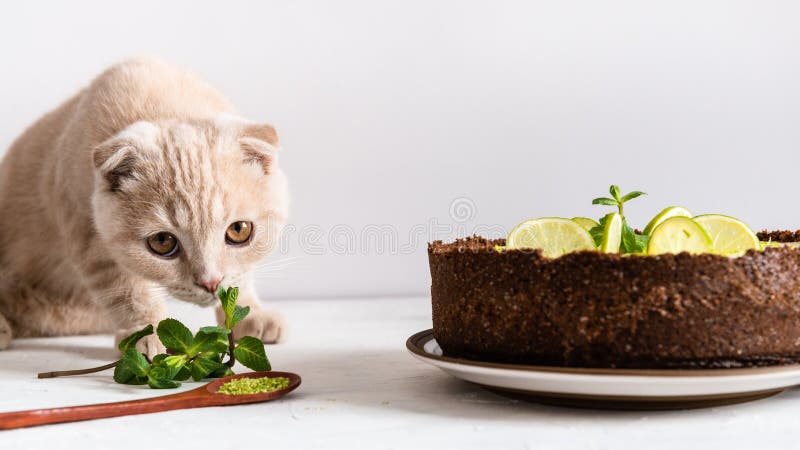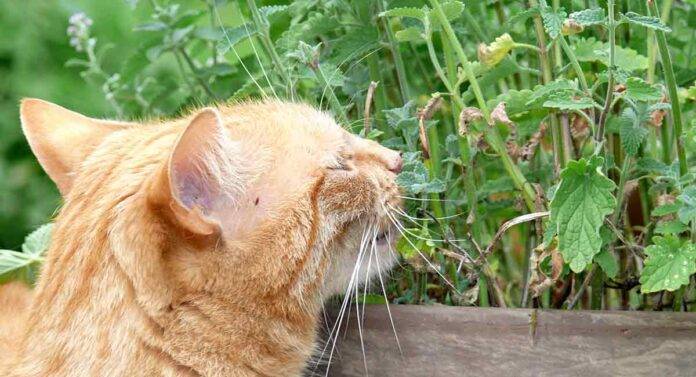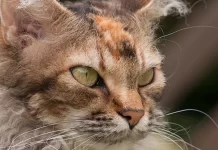Last Updated on February 23, 2024 by Fumipets
Do Peppermint Scents Affect Cats?
Cats adore catmint and catnip, so peppermint may appeal to them as well. While it’s a reasonable assumption, peppermint is irritating to cats and presents a serious health risk, therefore veterinarians advise avoiding it. Veterinary treatment for cats that inhale or consume peppermint is both costly and time-consuming.
When Cats Sniff Peppermint
That minty fresh scent that makes you feel clean and tingling won’t make your feline companions feel the same way. Peppermint oil, which is an essential oil, is particularly irritating to cats’ neurological systems. If your cat inhales mint oil, she may get aspiration pneumonia. Fever, quick or laborious breathing, and a high heart rate are all symptoms. Coughing or sneezing out droplets of the inhalant that triggered pneumonia, such as mint oil, is common in cats.

Additional Peppermint Problems
Your cat will be irritated if she ingests anything containing peppermint by mistake. Cats may have unsettled stomachs, liver damage, or issues with the central nervous system. Drooling and a lack of appetite are symptoms of the latter. Even putting peppermint essential oil on your pet may be harmful, according to aromatherapist Kristen Leigh Bell: “One drop of essential oil rendered a cat so sluggish and unresponsive that her owner sought emergency veterinarian care.”

Considerations
When adding scented items into your house, proceed with caution. Many reed diffuser kits, according to the ASPCA, include essential oils that may cause gastrointestinal and central nervous system issues. Even if you are positive the fragrance does not include mint, it may still be harmful to your pet.

What To Do
To prevent inadvertent consumption or inhalation of peppermint, the ASPCA recommends avoiding using peppermint items in places of the house where your cat may reach them. Take your cat to the vet right away if she looks sluggish or unresponsive and you discover proof that she swallowed or breathed mint.
https://www.youtube.com/watch?v=4QluooLfCkQ
FAQ’s
Q1: Can cats detect the scent of peppermint? A1: Yes, cats have a strong sense of smell and can detect the scent of peppermint.
Q2: Does the scent of peppermint affect cats? A2: Peppermint scent can be irritating and overwhelming for cats. It may cause discomfort and even allergic reactions in some cats.
Q3: Can peppermint oil be harmful to cats? A3: Yes, peppermint oil can be toxic to cats if ingested or applied directly on their skin. It contains compounds like menthol and pulegone, which can be harmful to feline health.
Q4: Are there any benefits of using peppermint scent around cats? A4: While peppermint scent may have certain benefits for humans, such as providing a refreshing aroma or repelling insects, it is generally not recommended to use it around cats due to its potential adverse effects on their well-being.
Q5: Can cats be trained to tolerate or like the scent of peppermint? A5: Cats have individual preferences, and while it is theoretically possible to train a cat to tolerate or like the scent of peppermint, it is not a natural fragrance for them. It is advisable to respect their sensitivities and avoid exposing them to strong scents.
Q6: What are the signs of a cat being affected by peppermint scent? A6: If a cat is affected by peppermint scent, you may observe signs such as excessive sneezing, coughing, watery eyes, vomiting, diarrhea, or behavioral changes like restlessness or avoidance of the scent.
Q7: Are there alternative scents that are safe and enjoyable for cats? A7: Cats generally prefer mild scents, such as those of catnip or valerian root. These scents can have a calming and enjoyable effect on cats, unlike peppermint, which can be overwhelming for them. It’s important to remember that individual cats may have different preferences, so it’s best to observe their reactions to different scents.


















